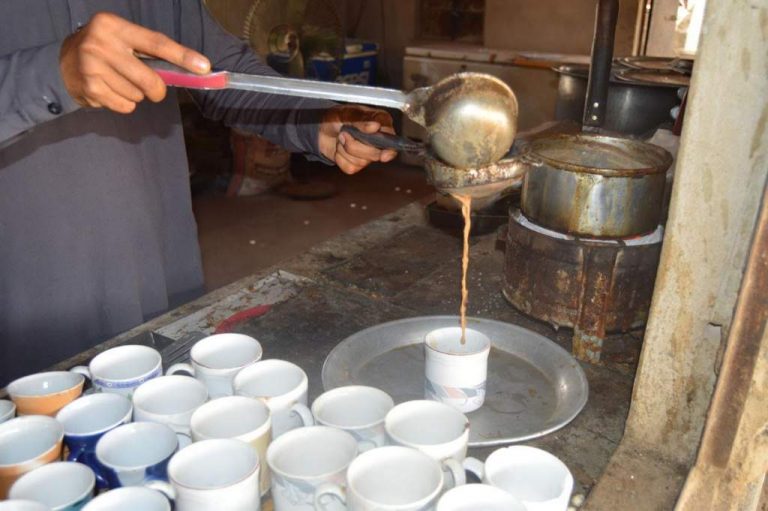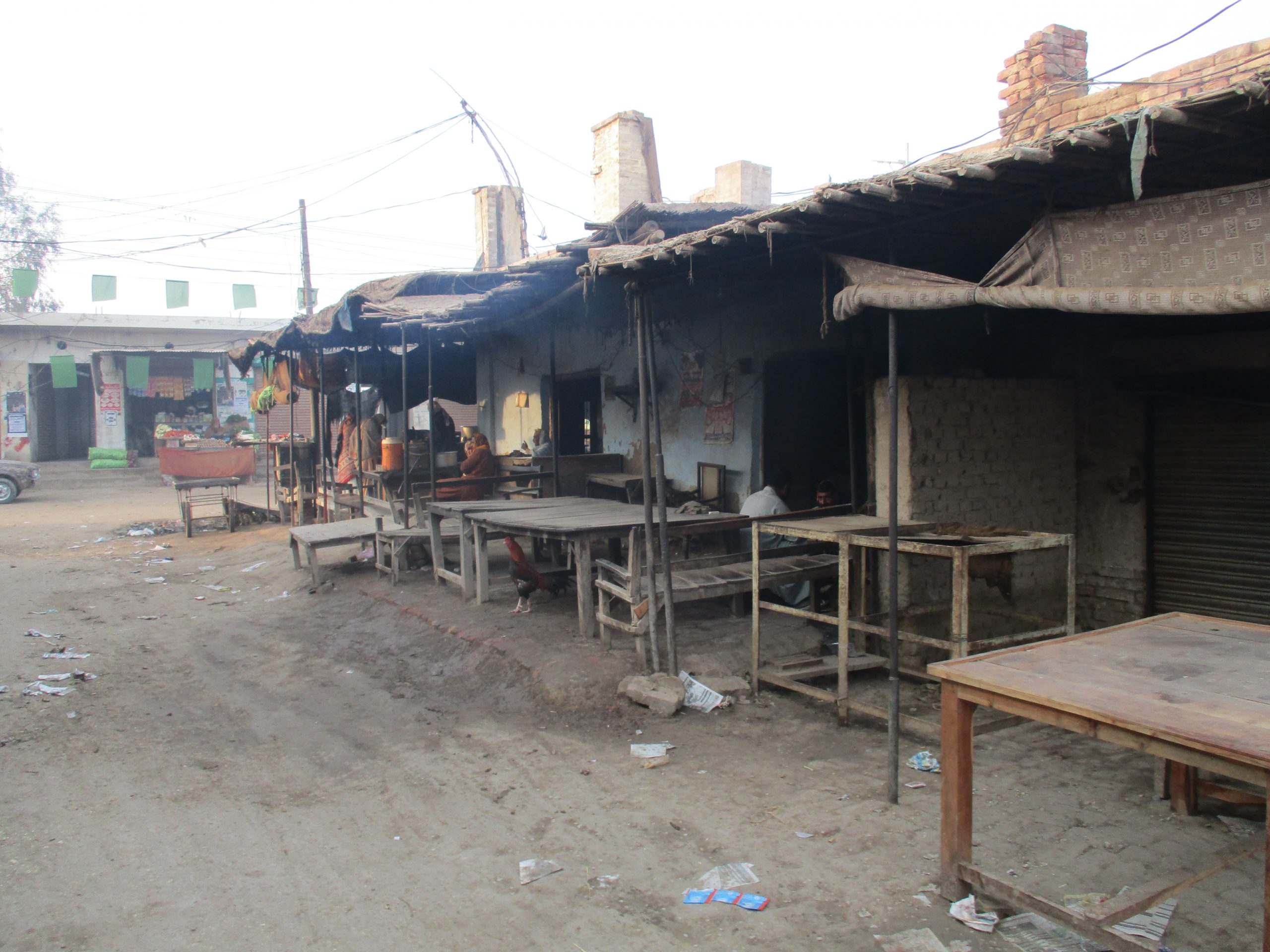
The worst affected business due to inflation is the ‘tea houses’ in rural areas where the vast majority lives.
Nazeer Ahmed Arijo
The business of hotels, particularly the tea serving spots is on the decline following fallout of inflation. The Inflation has negatively impacted big businesses in general and small businesses in particular. One among the worst affected business is the hotel industry especially ‘tea houses’ in rural areas where the vast majority lives. The number of tea-takers has reduced owing to the price of a cup of tea, which has ballooned to Rs.50.
With skyrocketing prices of food items, ever-increasing prices of energy and backbreaking utility bills, people find it hard to afford a cup of tea in spare time. Those teahouses used to be busy spots with tea takers thronging there in order to focus away everyday anxieties caused by demanding practical life.
The jocund company of friends joining over a cup tea provided them a transitory respite from routine troubles. The raise in the prices of items of daily use has deprived the majority, trapped in poverty, this simple source of happiness. Now, those tea houses which once used to be packed with customers are experiencing low turnout of tea-taker.

While talking to various tea-sellers as well as the contractors running those tea houses in my district, it dawned upon me that their business in question used to be profiteering but now it has ceased to be so. Given the ordinary finding it is hard to keep the home-fire burning as such a simple pleasure of meeting over a cup of tea is beyond the reach of ordinary- the villagers, daily-wagers and farmers etc.
According to those interviewed, the recent price hike in items of daily use, has put an extra financial burden on pockets of their customers. This is why they are subsequently dropping out from such simple source of social interaction aimed at alleviating their day- long -physical fatigue, or worries.
On the basis of the this assessment, it is easy to infer that this fast losing purchasing power for a cup of tea, should be the same throughout Sindh province – not to mention other provinces. In response to my question, the owners and the contractors running those hotels and teashops were unanimous that those still managing to come over, are opting for a half cup of tea known as ‘kut Chai’ – a half cup being sold at Rs.25 rather than the full cup at Rs.50. “If things continue as they are, closure of such businesses can’t be ruled out altogether,” they opined. This speaks volumes about the majority losing purchasing power even for a cup of tea. Whereas those at the helm of county’s affairs continue making tall claims of ensuring streams of milk and honey for the majority.
The story elaborated above does paint a different picture. What the ruling elites have failed to understand so far is that IMF-dictated economic policies have unleashed unimaginable troubles on the majority, who live below the poverty line in this country.
A 2018 World Bank report titled ‘State of water supply, sanitation and poverty in Pakistan suggested that 80 percent of Pakistan’s poor live in rural areas. The unequal distribution of wealth, unemployment, getting no fair price of crops and other agricultural produce in the market are some of the factors fueling rural poverty. The mainstream opposition political parties’ heavy weights have lampooned the PTI-led government over its inability to put the genie of price hike back into the bottle. But the government is in a state of denial and defiance. Recently, after having conceded that the economic uncertainties were caused by external fault-lines in certain monetary and government policies and their exploitation by markets players, advisor to the PM on Finance and Revenue Shaukat Tarin sought public patience in the face of rising prices. He, like the Prime Minister, presented the purchasing of motorbikes by people in rural areas as a proof of rural prosperity, whereas the reality is otherwise. Shrinking public transport in rural Pakistan, the population is compelled to buy motorbikes that too on interest-based sale. It is thus a compulsion rather than a luxury item being bought hence it can’t be termed as an indicator of rural affluence. Instead of fixing the policy fault-lines and holding those involved in monkey business to account, the present government has consistently passed the buck to the previous governments calling the tsunami of inflation and rising prices of electricity, oil and gas etc.as fallout of bad economic policies pursued by these governments – This arrogant administrative approach have added to misery of the miserable.
Despite public demonstrations calling on the government to bring down fuel prices following its inflationary impact on commodities, the cabinet ministers including the chief executive continue claiming that both inflation and prices of fuel are much lower when compared to neighboring countries.
This incompetent government simplifies the complex issue of rising prices in the country. The truth is that the price hike benefits the business tycoons in the country. And no rocket science is required to know that those rulers are the beneficiary of inflation since capitalists turned politicians have direct or indirect businesses. Ruling elites or their cronies are accumulating wealth leaving the masses in misery.
Against this backdrop, the government is all set to drop a bomb of mini-budget, instigated by IMF compliance, on the public already tucked into a vicious circle of indirect taxation ultimately depriving the majority their prospects of decent life. While better life is still a distant dream, the poor in rural areas are losing purchasing power for as simple as having a cup of tea after a daylong toiling and working. Vice President Pakistan People’s Party and Senator Sherry Rehman tweeted that oil prices in the global market are falling but the government has not reduced the prices of petrol, it is collecting more than Rs.27 per liter of petrol and Rs.33 per liter of diesel. The PPP leader accused the government to have neglected OGRA recommendations of reducing oil prices. While announcing her party’s countrywide protest against inflation from December 10, the senator said: “The last three years of this government have been disastrous, as the whirlwind of economic policies that have been implemented have resulted in a perfect storm of multiple economic disasters; the government has put the economy on the ventilator due to regressive taxes and triggered an inflationary spiral. All economic indicators point towards a failure in governance, be it the $5.107 billion trade deficit or the falling of PKR which is now at 176.65 and is putting immense pressure on the current account deficit. The dangerous double-digit inflation rate now stands at a whopping 11.5 percent, haunting the public that is already exhausted from unemployment and poverty. Whether it is the record-breaking debt, extortionate petrol prices, perilous trade deficit or the plunging value of the PKR; our economy is on a ventilator”.
It is very difficult to disagree with the senator’s nutshell narration of bad economic indicators thanks to imprudent policies resulting in inflation, economic meltdown and the nosediving currency. The government needs to come down the container in order to see clearer picture of ground realities i.e. people even losing economic affordability for simple entertaining avenues called hotels in rural parts of Pakistan. What those at helm of country’s affairs need to realize is that a political famine –refusing to grasp the gravity of situation is devastating in a country where the both middle and salaried class are struggling. Then what about the disadvantaged and the unemployed? On 1st December, a jobless man ended his life by jumping off a mall’s third floor in Karachi because of unemployment. This suicide throws light on murky economic environment in which those educated but jobless new generation is muddling through in urban centers. According figures made available by Pakistan Institute of Development Economics (PIDE), 24 percent educated people are jobless countrywide. Despite,’ strangulating’ inflation, Tarin says, ’no need to panic’. This problematic approach is the problem- seeking public patience while the majority is on the brink of beggary. Those in the corridors of powers must wake up and feel the coffee. Imagine taking a full cup of tea has become a luxury – beyond the reach of common class. “Where laws grind the poor, and the rich men make the laws.”
[author title=”Nazeer Ahmed Arijo ” image=”https://sindhcourier.com/wp-content/uploads/2021/08/Nazeer-Ahmed-Arijo-Sindh-Courier.jpg”]Nazeer Ahmed Arijo, an educationist and a freelance contributor. He can be accessed at email: nazeerarijo@gmail.com[/author]